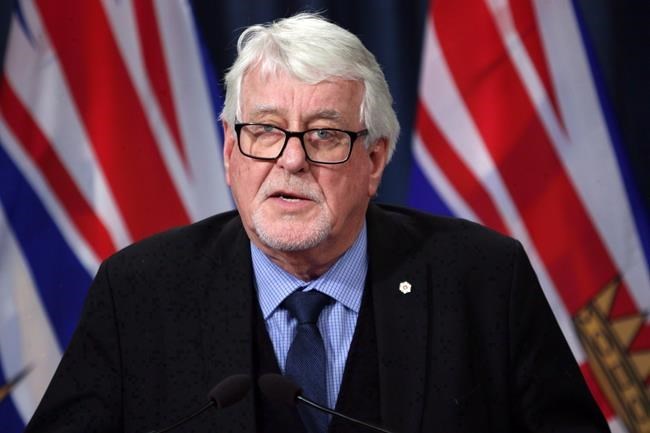B.C.’s provincial health officer is warning parents about the ongoing overdose crisis and urging them to speak with their teenagers about the risks of drug use as summer approaches.
In a letter that will be distributed through middle and high schools next week, Dr. Perry Kendall writes that 19 young people between the ages of 14 and 18 have died from illicit drug overdoses since January 2016.
There were 12 deaths last year and seven already in the first four months of 2017. A 17-year-old Esquimalt girl died from a suspected drug overdose in April.
“We hope that with your help in speaking to the youth in your life as they go into year-end celebrations and new activities in the summer months, we can avoid preventable tragedies,” Kendall writes. “Each of us can make a difference by starting a dialogue with the youth in our lives. Together we can begin to turn the tide on this crisis happening in our communities.”
Kendall said in an interview Friday that the risks are potentially even greater this year due to the emergence of deadlier drugs.
“We are moving into holiday season, grad season, party season and summer festival season, and this summer … we probably have a potentially even more toxic drug supply,” he said.
He expressed hope that his letter will spark conversations between parents and children.
“I think these are difficult topics for parents to raise, but I think they’re necessary topics,” he said. “The more aware parents are, the more comfortable they feel talking about these things, then the better it is for their kids.”
The NDP’s Selina Robinson, MLA for Coquitlam-Maillardville, said while Kendall’s letter is worthwhile, it’s going out a bit late.
“Certainly, in my community, a lot of the grads have already happened,” she said. “So it’s sort of what happens when you don’t have a minister paying attention.”
Robinson blames the length of time it has taken the Liberal government to recall the legislature and relinquish power. The NDP and the B.C. Green Party, which have signed a deal to topple the Liberals once the house returns next week, plan to establish a stand-alone ministry of mental health and addictions.
Meanwhile, Robinson said, the response to the overdose crisis remains “haphazard” and reactive.
Kendall declared a public health emergency in April 2016 to deal with a spike in opioid-related overdose deaths, but the crisis shows no signs of abating.
The latest statistics from the B.C. Coroners Service indicate that 136 people died of illicit drug overdoses in April — nearly double the number in the same month last year.
In his letter to parents and guardians, Kendall states that about two-thirds of overdoses in B.C. are due to powerful synthetic opioid compounds such as fentanyl, which is 50 to 100 times more toxic than morphine, and carfentanil, which is up to 100 times more potent than fentanyl.
“A very high percentage of illegal, street opioid drugs like heroin and fake Oxycontin contain fentanyl,” he writes. “But you also should know that fentanyl is being found in street drugs that are not sold as opioids, including drugs like cocaine, ecstasy (MDMA) and methamphetamines. The dealer may not know fentanyl is in them.”
Kendall warns that occasional users are at an especially high risk of overdosing if fentanyl is present because they have no built-up tolerance for opioids. People who use drugs alone also risk death because there is no one around to help if they overdose.
The letter states that young people should be encouraged to call 911 if they witness an overdose and that they need to know there will be no criminal consequences as a result.
The letter recommends having “non-judgmental and supportive conversations” with youth and provides links to articles at healthlinkbc.ca that provide further tips on how to speak with young people about substance use.
“Obviously, the best way to stay safe is to avoid drugs altogether, but we know that many of our youth will experiment,” Kendall writes. “Reach out and start the conversation. You are the most important source of information for your children.”



